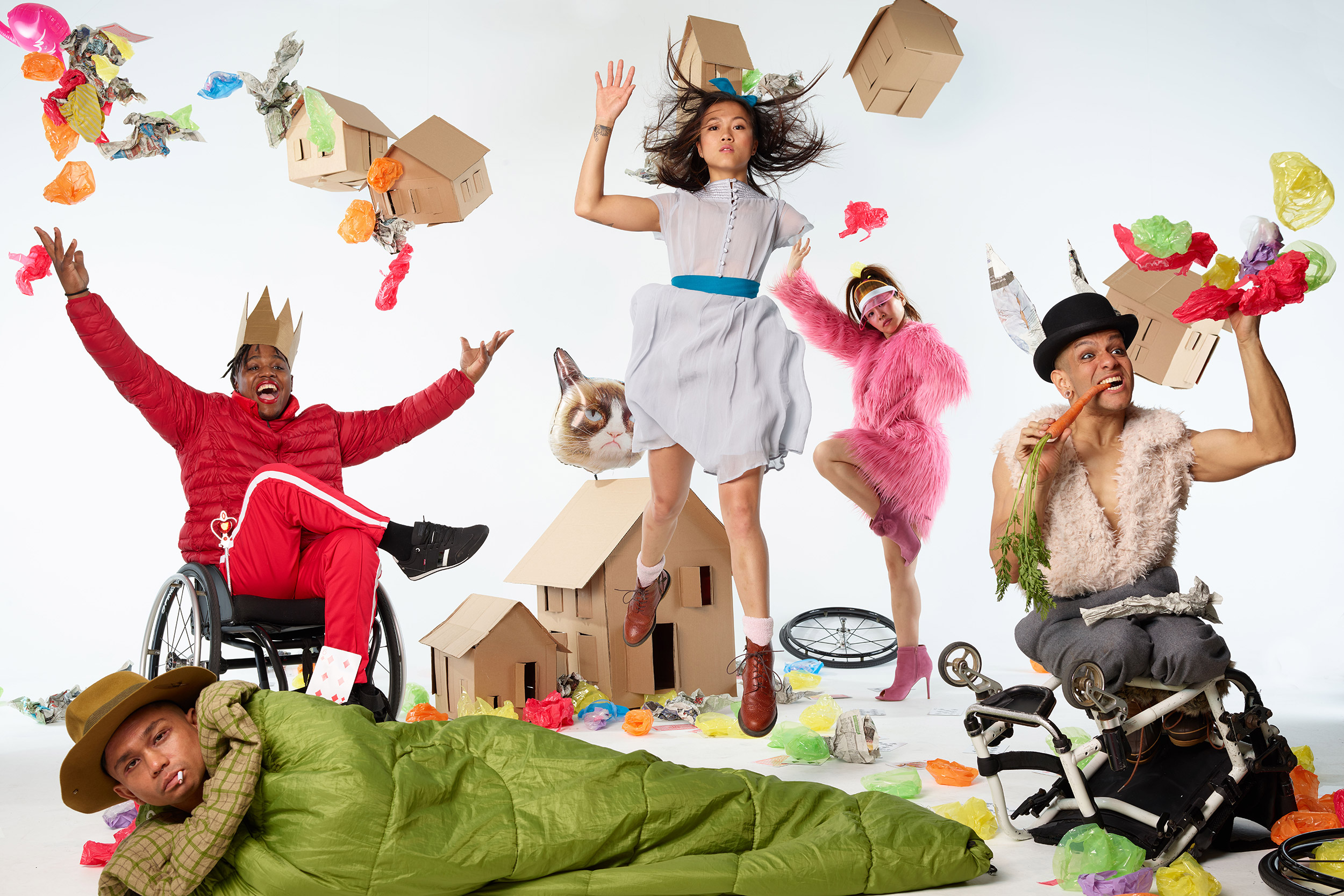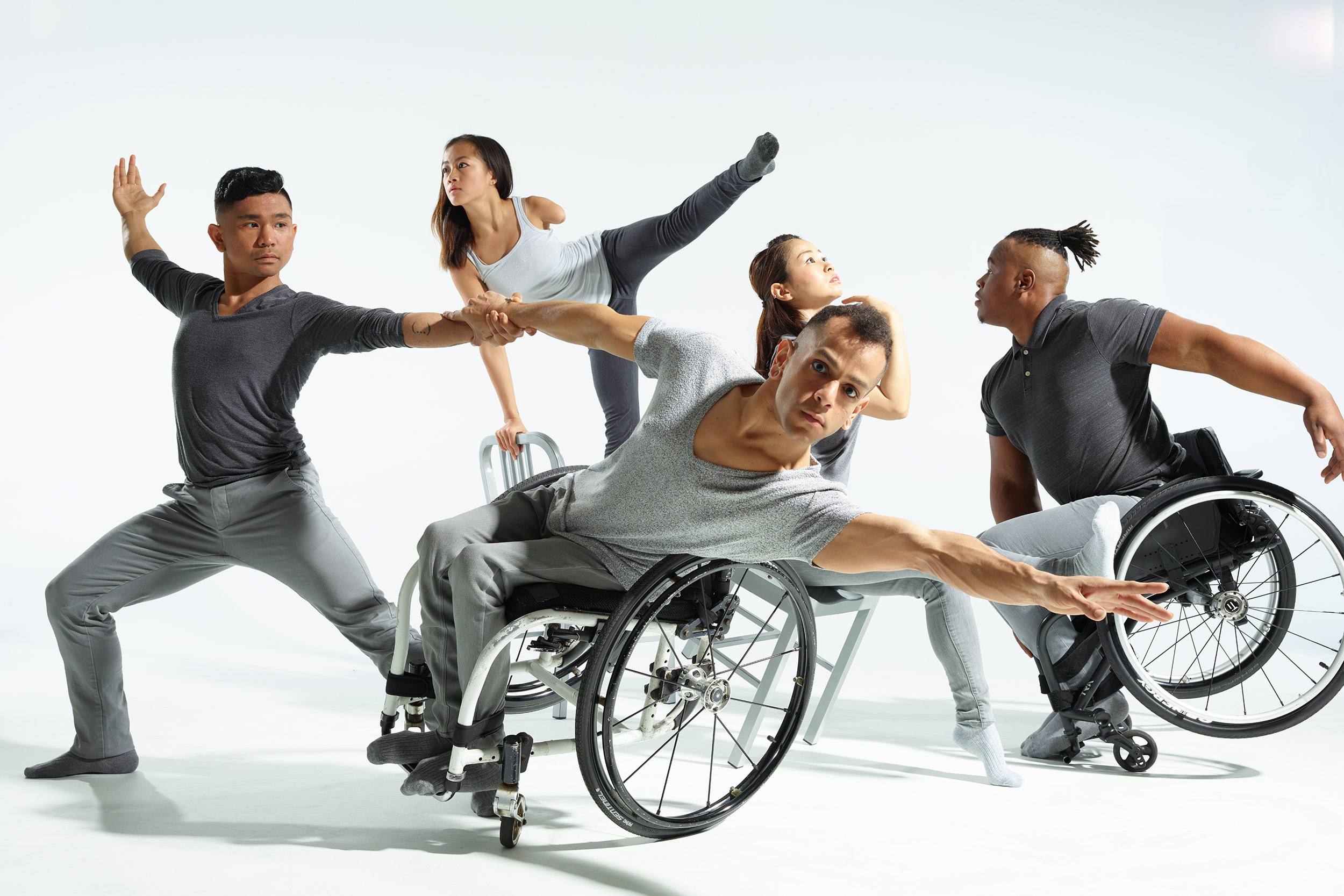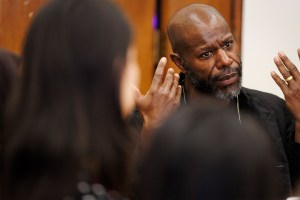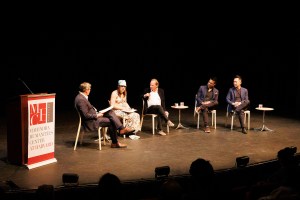
Photos by David DeSilva ©
Bucking assumptions about dance
AXIS pieces blend vision of artists who are disabled, those who aren’t
AXIS Dance Company is comprised of disabled and non-disabled dancers working together to challenge misconceptions about the art form. Rehearsal Director Sonsherée Giles and company dancer DeMarco Sleeper will hold a virtual master class hosted by the Harvard Dance Center on Wednesday. The event, part of the Harvard Dance Center’s Fall 2020 Visiting Artists Series, is supported by the Office for the Arts and is open to the Harvard and Boston-area community. Members of Oakland, Calif., company will also meet with undergraduates for a “Sip & Chat” discussion event on Thursday. AXIS Artistic Director Marc Brew spoke to the Gazette about how the company has adapted to the conditions of the COVID-19 pandemic and the importance of building artistic communities online.
Q&A
Marc Brew
Gazette: What does the collaboration between disabled and non-disabled dancers bring to the art?
Brew: It all comes down to access. That’s been at the essence of everything that we’ve done through all of AXIS’s 34 years of history: to look at the possibilities and to show the creative excellence of work that’s created with disabled and non-disabled dancers. There needs to be that connection and that integration of disabled and non-disabled dancers. We’re bringing different perspectives to the art form, and I think it’s helping to push the form of dance forward. Our role is also one of advocacy and education through the work that we do, like our engagement work and wraparound work around master classes, teacher trainings, workshops, residencies, and support of disabled artists. Advocating for people with disabilities to have access to dance and dance training has always been at the core of what we do.
Gazette: What are some of the misconceptions that people have about disabled dancers?
Brew: As a dancer with a disability myself [who] also trained as a non-disabled dancer in a very formal, classical, and contemporary dance training setting, I experienced both sides of the fence, so to speak. Straightaway, people thought I couldn’t dance. There is also a fear element of people not wanting to see people with disabilities move onstage. In one of the early reviews of AXIS, somebody had written that no one wants to see suffering onstage, because people have this idea that disability is about suffering. In the world of classical ballet, everyone’s striving for the so-called “perfect body” and looking the same. What we rejoice in and are very proud of is that through difference, there is beauty and that’s what we bring, and how we collaborate together. We’re not trying to be the same.
“At AXIS, we say that if you have a body, you can dance.”

Gazette: How have things changed for AXIS during the pandemic?
Brew: In March, we were just beginning our assembly program where we go into schools, and students [learn about] ideas and themes around physically integrated dance, accessibility, disability awareness, and contemporary dance. We were going to be touring as well, and that got cancelled. We lost a huge amount of income [from] work that we did, and the work that we had planned. But we were very quick to pivot online. I think being artists, we’re very adaptable. We started to put classes online and really focused on making them accessible. We also did a program called Dance Access Online, which was a reimagining of our Dance Access Day, which normally happens in a theater and we hold two shows a day for two days. We also held our summer Choreo-Lab for disabled choreographers virtually. At the end, we had a showing, which was done online and people were invited to watch. It was amazing to be connected with so many people from all around the world.
It’s been a huge amount of learning for all of us. We’re so used to being in the studio and being onstage and being together in person, and our work is derived from physical contact, partnering work and improvisation. We’ve been doing classes every day virtually and been opening them up to the community as well. But there are restrictions of space and internet access, and it’s been hard emotionally and physically and mentally for people. We’ve really just tried to hold space and listen to people individually about what their needs are and how we can best support them. We miss that physical contact and being able to feed off each other’s energy and that often gets missed in online spaces. But imagine if we didn’t have technology — how much more isolating it would have been.
Gazette: What can participants expect from an AXIS master class?
Brew: When I think of master classes, the first word I think of is fun. The classes are inclusive and create a space for everyone to feel part of the group. We are aware of how we teach and deliver the information in an inclusive way and making it accessible, so everyone feels welcome and a part of the experience. We often use verbal descriptions, as well as imagery and qualities, and demonstrations of different set exercises. At AXIS, we say that if you have a body, you can dance. That’s one thing that I discovered after acquiring my disability 24 years ago: I was still a dancer, and I could still dance and what dance meant to me was expressing myself through movement. Expression is so important, especially in our current world, and it’s also healthy for us to move. The joy of dance can bring that healthy mind, body, and spirit.
Interview was edited for clarity and length.




